
Welcome to our April Farm Net Zero newsletter, sharing updates for our farmers, growers and the wider community this project supports.
Recent news and events
Since our previous newsletter the Farm Net Zero partners have been busy with more brilliant events
Hedges – a win-win!
Becky Willson was joined by Roger Halliday, one of the Farm Net Zero Monitor Farmers, Emma Eberhardt from Forest for Cornwall and Dr. Rob Wolton on the 16th February to discuss the benefits of hedgerows for carbon capture, livestock health and biodiversity. Read about it here and find the factsheet here.
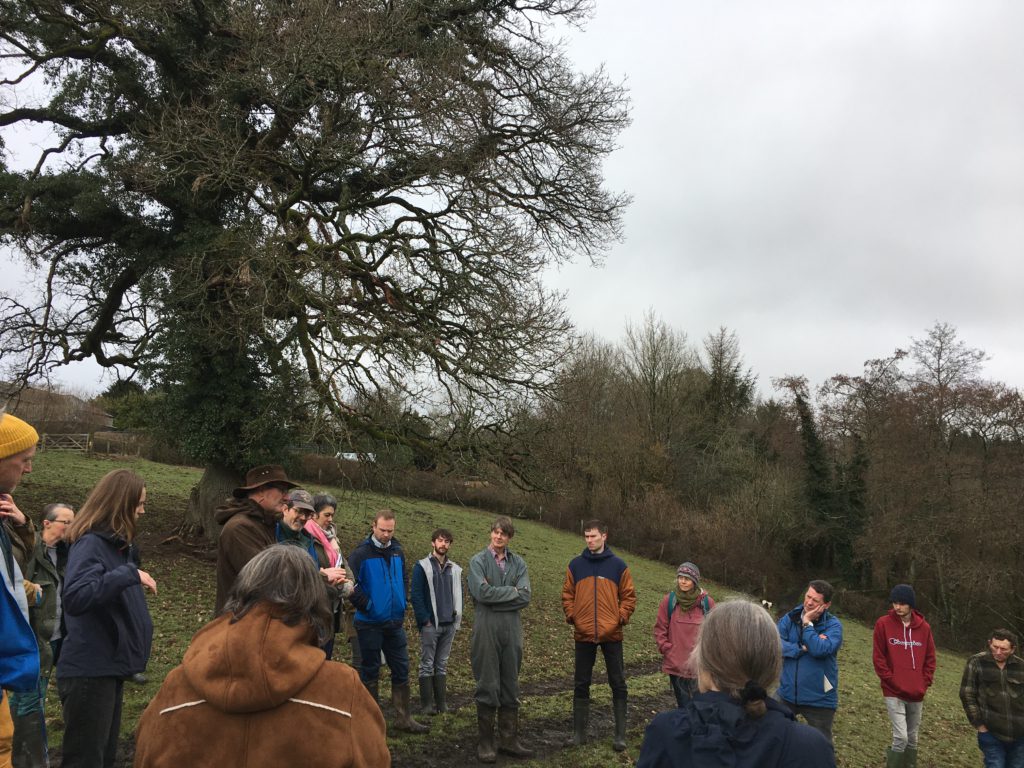
Methane Capture from Slurry
On 22nd March, Kevin and Katie Hoare of Trenance Farm kindly hosted an insightful event all about methane capture from slurry. They discussed the layout, technology and process of methane capture using the Bennamann system, and demonstrated the latest methane tractor prototype! Read about it here. See how it affected their carbon emissions here.
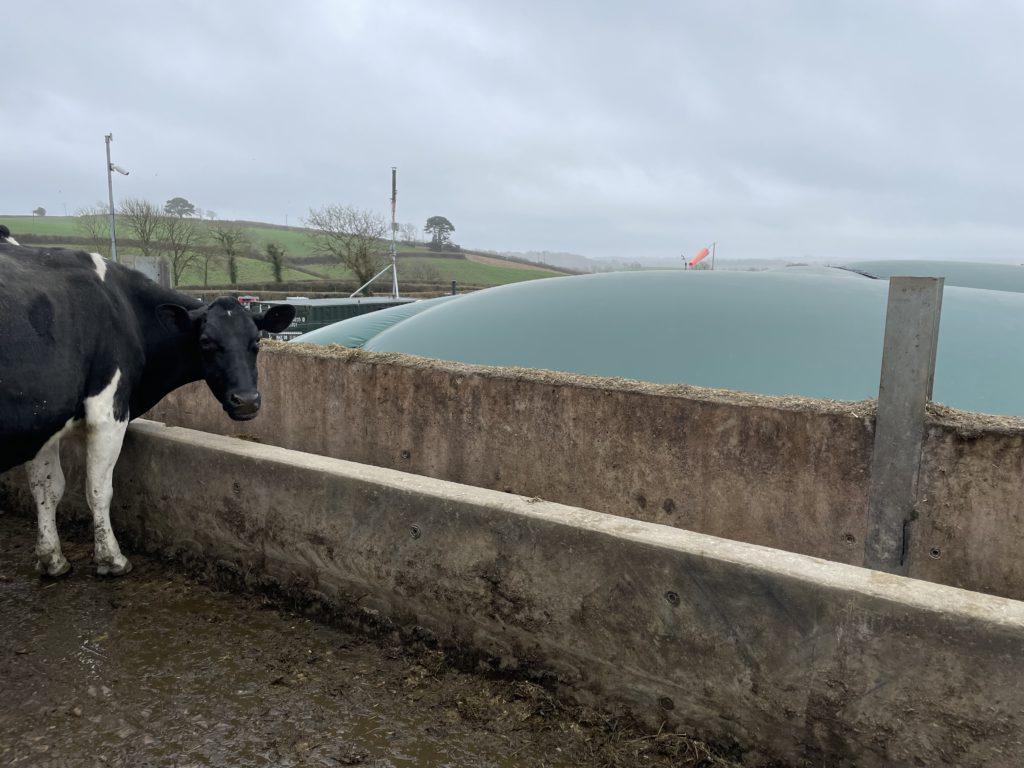
Climate Friendly Food Event
Duchy College organised the latest FNZ Workshop for Professionals, held at The Lost Gardens of Heligan on Wednesday 22nd February.
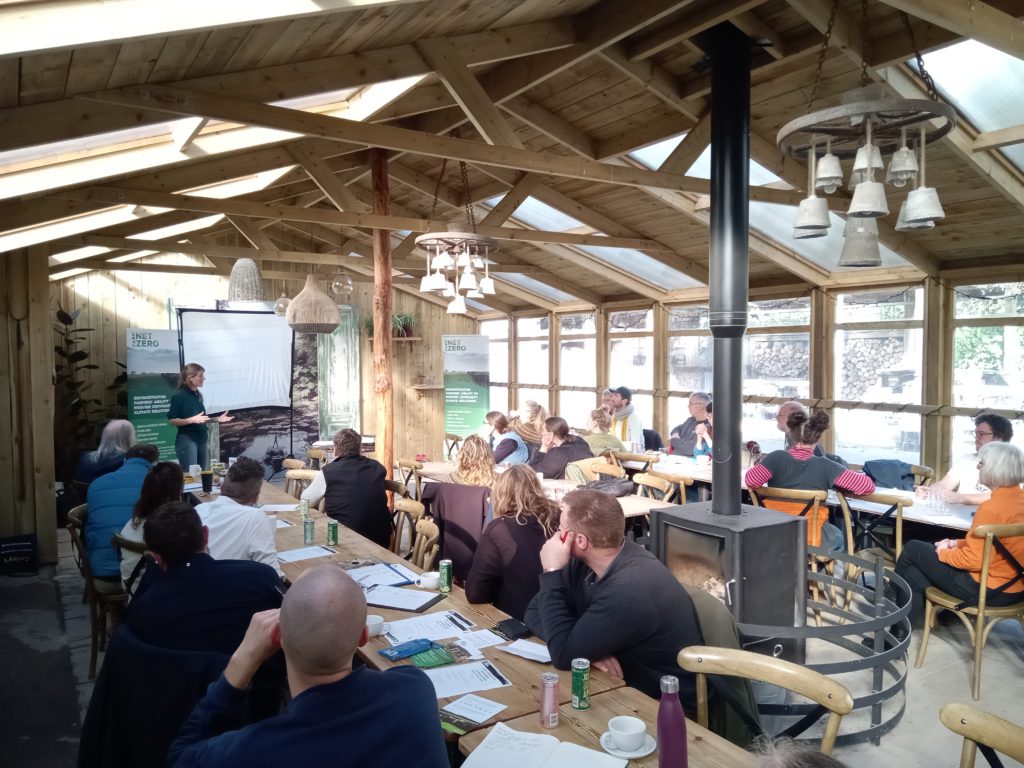
The event attracted a good mix of food businesses interested in local and sustainable food, and gave them the opportunity to learn about carbon footprinting of farm produce, changing farm practices to become more sustainable, and how best to integrate these opportunities in their businesses.
The event included excellent talks from three Monitor Farmers (Anthony Ellis, Amelia Lake and Will and Kate Martin), plus Oliver Lee of How Now Dairy, showing how our community of farmers are reducing their carbon footprints. We hope that the workshop demonstrated to food businesses that farmers are working on improving the environment and that they should be supported in their efforts.
Our up and coming events are listed in What Next? at the end of the newsletter. Also keep an eye out for future events on our events page here.
Demo farms update
Soil health after potatoes
Andrew Brewer at Ennis Barton trialled a range of cover crops undersown with ryegrass and white clover in one field over the winter of 2022-2023.
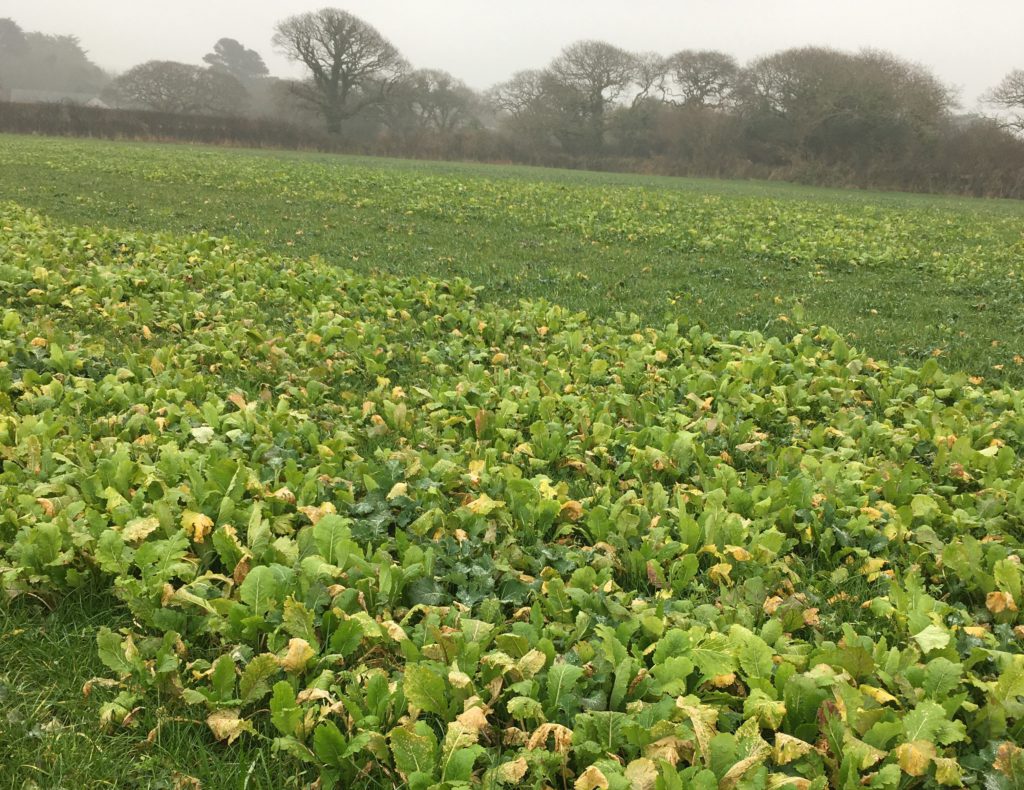
This was a single field trial, but early indications suggest cover crops including Westerwolds ryegrass are the best for stabilising soil after potatoes. The trial continues to determine the yield and quality of the rye grass after the covers have been grazed off.

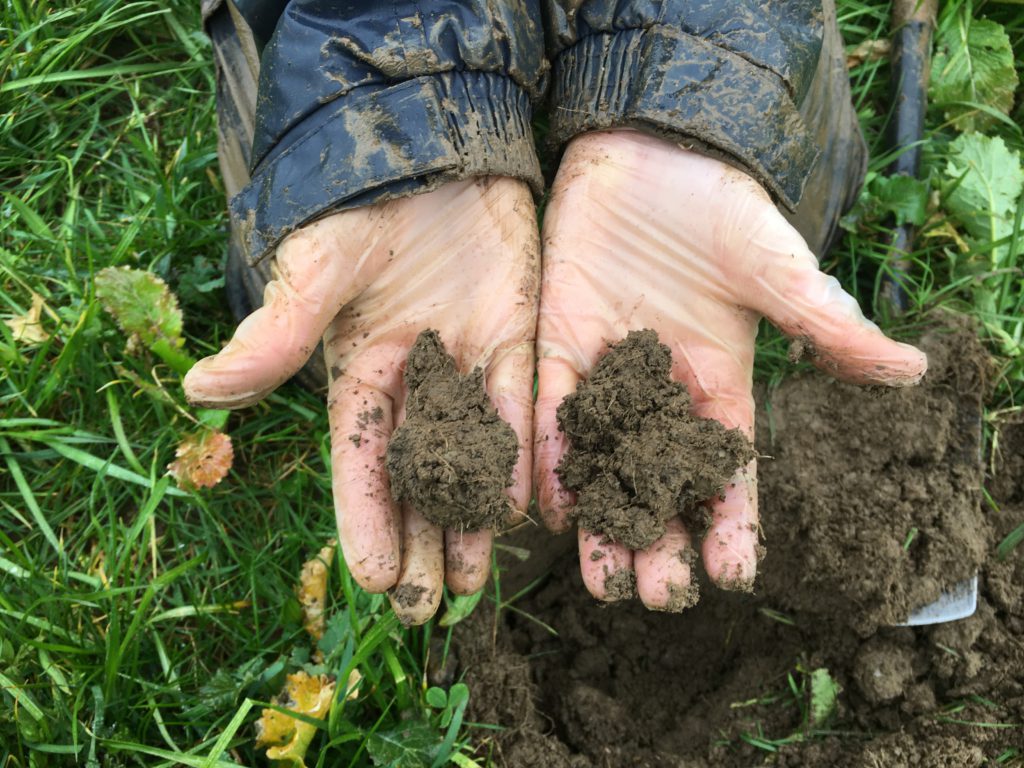
Farmer Field Labs update
Farmer-led research digging into the perks of compost
It is widely accepted that compost can help capture carbon, retain nutrients, and reduce the dependence on bought-in fertiliser by improving the soil structure and biology.
This new Innovative Farmers field lab with Farm Net Zero will explore how compost quality can be influenced by a wide range of variables during the production process. Read about it here.

A-maize-ing
Farm Net Zero Monitor Farmer Malcolm Barrett’s work reducing costs and greenhouse gas emissions from maize establishment with his sumo drill (mentioned in the previous newsletter) has sparked a new Innovative Farmers field lab on maize establishment – if you are interested in taking part please contact Hannah Jones
Other news
Carbon footprint
We have started to repeat carbon footprints of monitor and demonstration farms. We must re-sample fields within the same month as the original sample, so many fields will be sampled this autumn, but some have started now! If you want your footprint repeated more urgently for your suppliers please let us know.
Soils and Nutrients Conference
Westcountry Rivers Trust held a well-attended Soils and Nutrients Conference at Duchy College on the 29th of March, where several soil pits were investigated discussing soil quality, health, and management. The conference allowed for plenty of informal discussion amongst the range of attendees throughout the day, with a focus on sustainable management of our soils in light of the risks of climate change.
The afternoon consisted of talks on several topics: Devon and Cornwall Soils Alliance: Achievements and the future; Phosphate trading solutions: integrated nutrient planning and credit creation; Measuring and valuing Soil Carbon; Future Farm management and monitoring the future of dairy; Cow to Catchment Monitoring: An assessment of the Luckett living laboratory; and Integrated Catchment Management: the case for breaking down silos.
Farm of the Future: Net Zero in Practice
Organised by Innovation for Agriculture, on 13th April, over 150 farmers and industry members attended this event at Harper Adams University. Leading farmers Abi Reader, Louise Manning, Helen Browning and Stephen Briggs discussed the changes they are making to reach net zero emissions. There were also technical sessions focusing on livestock, circular solutions from biowaste and autonomous vehicles.
Watch a quick video on the event here.
ORFC
We have submitted a session idea for the Oxford Real Farming Conference for 2024 called ‘It takes a community to reach net zero’. More to follow, we hope!
Films
Blackbark Films have been commissioned again to make some films for the project. We will be working with Bonny and Tim Lighfoot at Alren Farm, Catherine and Malcolm Barrett at Tregooden, Amelia Lake at The Real Food Garden, Claire and Andrew Brewer at Ennis Barton and Martin Howlett at Deerpark Farm. These films will highlight the contribution farmers make to communities.
Carbon Farmer of the Year
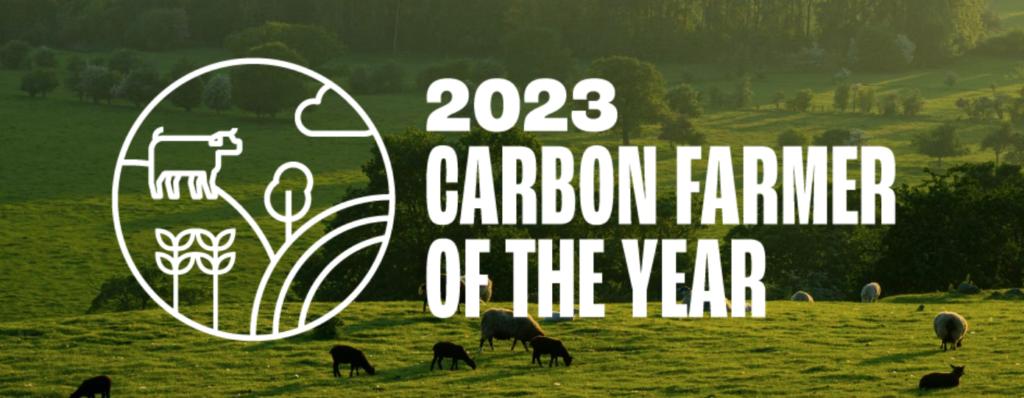
There is still time to enter the Carbon Farmer of the Year competition, see here to find out more about it, with details on how to enter. Entries close on 4th July.
Community engagement
No-Dig Gardening Workshop
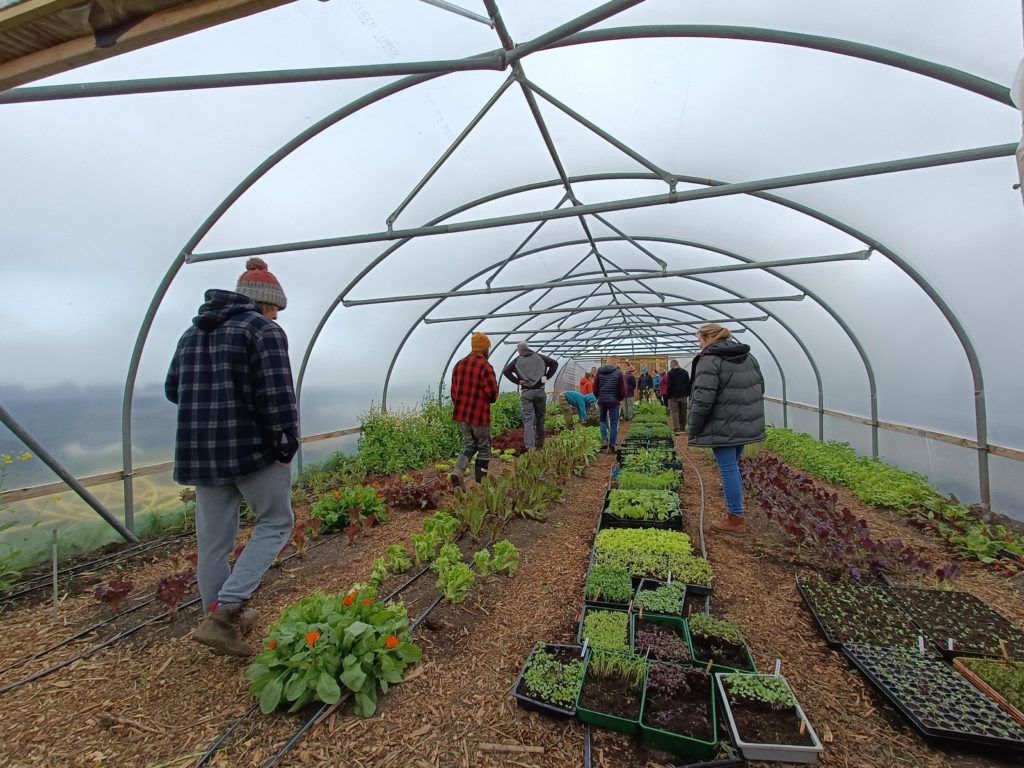
13th April was the first climate friendly gardening workshop of the year, with huge thanks to Community Roots Cornwall and the Westcountry RIvers Trust. This sold-out event focused on the increasingly popular topic of No-Dig Gardening, and discussed the benefits of green manures, wildlife strips to keep pests away from the crops, with some fascinating facts about soil, including how it stores nearly 4 times as much carbon as trees.
The group then brainstormed how they could better protect their soils, to keep this carbon locked in the ground.
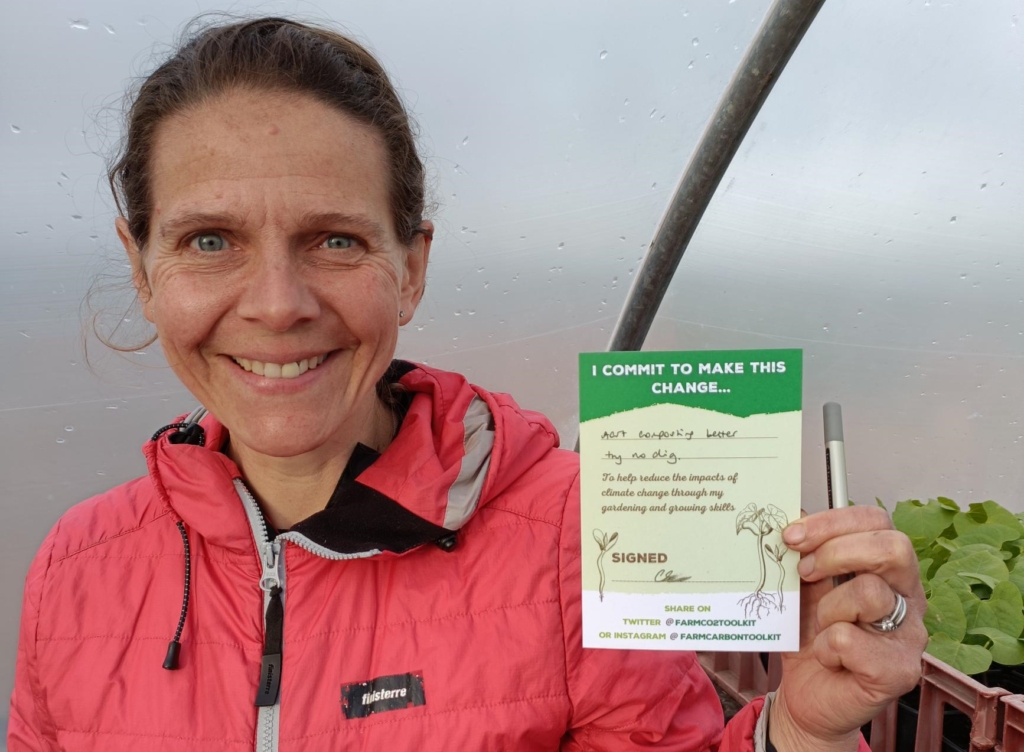
Watch this space for more climate-friendly gardening workshops including:
- Love Your Soil workshop with Loveland Community Field, Penryn
- Compost Innovations workshop with Camel CSA, Wadebridge
Recent studies find that UK city gardens have lost nearly 50% of their vegetation cover in the past 20 years and propose rewards (such as reduced council tax) to gardeners who adopt more sustainable gardening techniques. All the more reason to embrace some eco-friendly practices in your garden!
Please get in touch if you have a garden in Cornwall where you would like to demonstrate an example of good practice, or if you’re simply interested in finding out more about soil health.
Resources
- Check out the carbon footprint of one of our fantastically forward thinking monitor farms- The Real Food Garden. You can see how much their soil organic matter has increased here.
- Improved grazing management is one of the most effective strategies livestock farmers can use to improve their operations. Read our recent factsheet on it here.
- Some brilliant resources have come from the WRT workshops including:
To see all our other FNZ resources head here.
What next?
- On 27th April FCT hosts a free webinar covering a background to the carbon markets, what farmers need to consider, and the risks associated with them. To attend follow this link where you’ll need this passcode: Carbon111
- How does milk yield and constituents vary with the herbal ley diet? and is this a profitable system? Join us on 11th May at Ennis Barton near St Columb for this workshop and farm walk. Hear about Andrew Brewer’s experiences with managing herbal leys, tour his paddock grazing system, and perhaps take part in or contribute to new Innovative Farmers on-farm trials. With speakers from FCT, Soil Association and University of Bristol Veterinary School. Contact lgude@soilassociation.org for further information and booking.
- How to rejuvenate pastures – Our first ‘How to..’ event with James Barrett at Tremadart Barton who has grown herbal leys over the last 10 years, he will demonstrate how he stitches in herbal leys to existing pastures, look at seedbed prep focusing on depth and seed to seed contact, and show some rejuvenated leys. If you are interested please contact Hannah Jones directly. The date will be released last minute due to catching the soil and weather just right.
- Lucerne silage – In July Peter Cox of Mearfield Farm will be talking us through growing lucerne and ensiling lucerne. Watch this space! Lucerne has high crude protein and useful fibre with the potential to make significant financial and carbon savings.
- Matt and Pip of Trefranck Farm are having their Innovate UK Open Days on the 16th and 17th of May (17th May is the Worm Tolerant Sheep – Farmer Awareness day)
Getting in touch
If you have any questions or ideas that would further support the community of farmers that we are working with, please get in touch with the project team (contact details below).
All information about the project including upcoming events and resources are available on the Farm Net Zero website. As ever, if there is anything you would like to see featured please let us know.
Best wishes,
The Farm Net Zero Project Team.
This project, funded by the National Lottery Community Fund, is a partnership between Cornwall College, The Farm Carbon Toolkit, Duchy College’s Rural Business School, Westcountry Rivers Trust, Innovative Farmers and Innovation for Agriculture.
